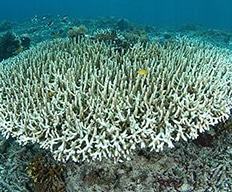Sustainable seas inquiry launched

The Environmental Audit Committee launches a new inquiry on the future of our seas – e
xamining how they be protected from climate change, acidification, overfishing and pollution, and how the Government can create a sustainable blue economy.
Environmental Audit Committee (https://committees.parliament.uk/committee/62/environmental-audit-committee)
In the years ahead there will be a growing global reliance on the sea for resources, driven by population growth, and facilitated by innovations in aquaculture and seabed mining.
Climate change and acidification threaten the future of marine life, and the communities which depend on the ocean. Pollution, including plastic pollution, is a growing threat to marine wildlife.
Chair’s comments
Mary Creagh MP, Chair of the Environmental Audit Committee, says: “We have only one ocean, and we all have a duty to care for it. The ocean plays a critical role in the daily lives of billions of people who live by it and whose livelihoods depend on it. Today it is suffering from pollution and plastic waste, climate change and acidification, as well as growing demands on its resources.
“Our inquiry will shine a spotlight on the threats to our ocean, and ask what more the Government could be doing to protect it. We will look at emerging marine industries, and how the Government can build a sustainable ‘blue’ economy.”
Intergovernmental Conference
Healthy marine habitats and biodiversity provides us with goods and services essential to life on earth, including food, raw materials, leisure and recreation, carbon and nutrient cycling, and climate regulation.
The value to the UK of marine biodiversity has been estimated to be in the trillions of pounds. In September, the United Nations will begin an Intergovernmental Conference on conserving marine biodiversity under the UN Convention on the Law of the Sea.
UN’s global goals
The UK has commitments under the UN’s Global Goals for Sustainable Development to promote the health of the ocean, including Goal 14 ‘Life below water’.
With its 14 Overseas Territories, the UK is responsible for 6.8m km2 of ocean, nearly 30 times the size of the UK itself. The UK signed up to the Aichi Biodiversity Targets to ensure 10% of the ocean is conserved and protected by 2020, but only 3% is protected at the moment.
The Committee will be focusing its inquiry on three areas and would welcome submissions by 5 pm on Wednesday 16 May that address all or some of the following questions:
The impact of environmental changes and the legal framework protecting ocean biodiversity
What forms of pollution are most prevalent in the ocean, and what impact are they having?
What impact is climate change having on the ocean? What are the effects of ocean acidification now and in the future? How important is meeting the goals set out in the 2015 Paris Agreement on climate change for marine biodiversity?
What more should the Government do to hasten progress towards Aichi targets?
What outcomes and protections should the UK Government be pushing for at the forthcoming UN negotiations on the conservation and sustainable use of marine biological diversity in the world’s oceans?
What is the UK’s record on meeting existing obligations under international law and the UN Sustainable Development Goal 14 (Life Below the Sea) in respect of biodiversity?
Is the UK’s current legal and regulatory framework adequate to protect biodiversity given the growing demands which are likely to be placed on marine resources?
A sustainable blue economy
How effective are the Marine Stewardship Council’s ecolabel and fishery certification scheme at ensuring fisheries are sustainable?
Does aquaculture cause less harm to marine biodiversity than fishing? Is aquaculture in the UK adequately regulated to protect biodiversity?
What could the UK do to promote a sustainable marine economy and achieve sustainable marine and coastal ecosystems management in the Overseas Territories?
The impact of marine industries, science and innovation, and blue finance
What is the environmental impact of marine industries, such as deep sea mining, and how effectively does the Government and the International Seabed Authority regulate them to mitigate their environmental impact?
How is the deep sea mining industry likely to grow in the years ahead? What environmental risks will this bring? What legal protections are in place to mitigate these risks? Are additional legal protections needed?
How well has Government supported UK marine science and innovation? What more could the Government do to promote a sustainable blue economy?
What national or international measures could the UK pursue to minimise the impact of marine resource extraction, such as sand mining, aggregate dredging and deep-sea mining?
Is private sector finance available to support sustainable blue industries? What could the Government do to promote ‘blue finance’ and investment in a sustainable marine economy?
Written evidence should be submitted through the inquiry page. The word limit is 3,000 words. Later submissions will be accepted, but may be too late to inform the first oral evidence hearing










